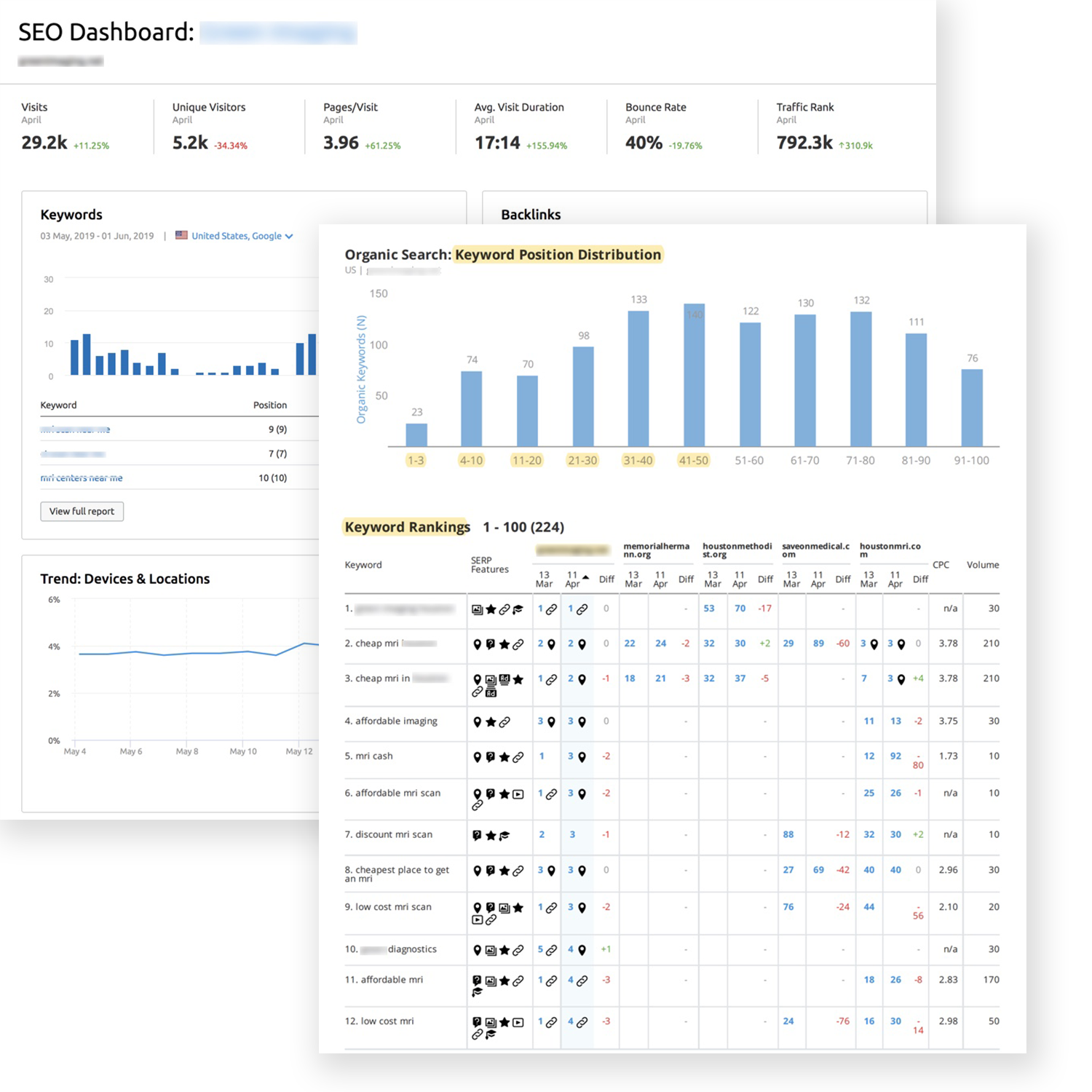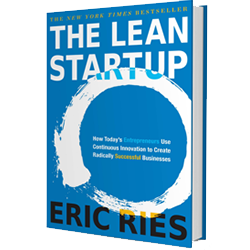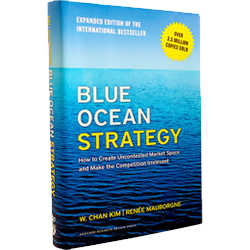How the Internet & Search Engines Work
The Internet is really just a collection of pages that are connected by links.
Let's use cities as a metaphor. A website is like a house where each room on the house is a page on the site with hallways and stairs connecting the different rooms. The rooms add up to a cohesive whole. You have different houses on the street, but everything in the neighborhood is related. If you add even more houses, you end up with a city.
Think of links like roads. They connect the different buildings and neighborhoods together. A big popular website is like a large office building with lots of roads leading to it. It's easy to see, and there are plenty of different ways to get there.
If you're building a new website, it's like your adding a new building to the city. Where would you rather have that building? If you're located at the intersection of a freeway and several popular cross streets, it will be a popular location that's very easy to find.
If you build way outside of town in the middle of a vast field, no one will know it's there.
Back at the beginning of the world wide web when there weren't that many websites, you could only reach a website by typing in the address of the page or clicking a link from another site. In the early 90s, the web had grown too large to sustain such a simple navigation and discovery process. The first search engines were born. Now users could type keywords into a search engine and receive a list of websites related to the search phrase, which quickly changed the way people were using the website.
In the late 1990s, Larry Page and Sergey Brin were working on their own search engine, and they were the first to use links as a signal of authority and trust. When their search engine Google was released, it quickly became the favorite search engine because the quality of the search results, which surpassed all other options.
The search engine created advanced algorithms that analyzed hundreds of factors both on and off the site. The algorithms are continually updated and adjusted to ensure the search results are the best that they can be.

Where does trust come from?
Trust comes from frequency.
But before frequency turns into sales, it turns into permission. Permission to communicate, permission to bring value, permission to teach. And permission is just a step away from trust.
Crawling, Indexing, & Ranking
So let's look at how search engines actually work.
When you search for a keyword phrase, Google will provide a list of website results that most closely resemble your search intent.
Most people don't realize that when the do a search on Google, they're not actually searching the live web. They're searching Google's index of the web --- the stored copy of the sites that Google has crawled.
Google uses programs called spiders to crawl the web. The spiders are how Google discovers content. The spider will scan the content on a website page and then follow the links on that page to discover more content. The spiders keep crawling until the internet has been crawled --- and repeat.
As the spiders crawl all of these pages, a copy is stored on Google's servers. This is Google's index, and it's stored in a way that allows Google to quickly search through the billions of pages in the index. When you search a particular keyword or phrase, Google checks the index and obtains a list of every web page that's related to your search phrase.
Here's where ranking comes into play --- this is the critical work of an SEO strategist --- to influence those rankings. Google uses an algorithm to look at that list of pages it just obtained from the index and begins ranking those pages based on relevancy and popularity.
Let's say you did a search for "Houston business attorneys" -- Google's going to search the index and come up with a list of every website of Houston business attorneys. Then it's going to use the algorithm to sort that list of that the most relevant sites will be at the top.
There are hundreds of ranking factors, each with a different assigned weight or value. The algorithm will look at a few hundred different factors that influence relevancy, such as the content on the site, the number of other sites that link to that page, and the overall quality of the website.
When we do SEO --- we're hoping to influence those relevancy factors. We know that if we optimize the right signals, Google's algorithm will decide that the page is more relevant --- that it's a better answer to the question being asked --- and show that page higher than the other options in the index.

Does Newsletter Marketing Work?
Tony Sedler is President & CEO of Burbank Dental Lab in Burbank, California. Burbank Dental Lab is a leader in dental restorations and employs over 250 people. Tony says, "Content marketing is the difference maker for lead generation followed by newsletter marketing as the primary catalyst for content distribution. Between the two and some excellent SEO from Jeff and his team, we generate plenty of quality leads for our sales team each and every week."

Let's Get Started
- STRATEGY
- Develop a Marketing Strategy
- Site Audit
- Keyword & Competitor Research
- Project Management Dashboard
- Project Meetings with Jeff Payne
- Marketing Report
- SEO Management Team
- Backlink Acquisition Management
- Keyword Management
- Pipeline Sales Management
- Systems Training
- Review Management
- INBOUND MARKETING
- Professional Copywriting
- Professional Blog Layout & Design
- Email Newsletter Marketing
- Custom Calls-To-Action
- Professionally Designed Landing Pages
- Case Studies
- Call Tracking Systems
- Social Media Marketing
- Contest & Sweepstakes Marketing
- Sales Funnels
- WEB DESIGN
- Custom Website Design
- Custom Website Development
- Dedicated Website Hosting
- Marketing Hub
- CRM Integration
- SEO Integration
- CREATIVE
- Logo Design
- Branding Elements
- Style Guide
- Social Media Banner Design
- Social Media Video Ad Marketing
- MEDIA BUYING
- Google Ads
- Facebook Advertising
- Media Report
- Amazon Services
- EXPERIENTIAL
- Event Marketing - Tradeshows, Conferences
- Webinars
STARTER
$4,500 / Month
- STRATEGY ---
- Develop a Marketing Strategy
- Site Audit
- Keyword & Competitor Research
- Project Management Dashboard
- Project Meetings with Jeff Payne
- Marketing Report
- SEO Management Team
- Backlink Acquisition Management Not Included
- Keyword Management Standard
- Pipeline Sales Management Not Included
- Systems Training 1 Per Quarter
- Review Management
- ---
- INBOUND MARKETING
- Professional Copywriting
- Professional Blog Layout & Design
- Email Newsletter Marketing Custom Development
- Custom Calls-To-Action
- Professionally Designed Landing Pages
- Case Studies
- Call Tracking Systems Basic Posting Schedule - Content
- Social Media Marketing Not Included
- Contest & Sweepstakes Marketing
- Sales Funnels Not Included
- Not Included
- WEB DESIGN Not included
- Custom Website Design
- Custom Website Development Not Included
- Dedicated Website Hosting Not Included
- Marketing Hub Basic
- CRM Integration ---
- SEO Integration Not Included
- Basic
- CREATIVE Not Included
- Logo Design Not Included
- Branding Elements Not Included
- Style Guide ---
- Social Media Banner Design Not Included
- Social Media Video Ad Marketing Not Included
- N/A
- MEDIA BUYING Not Included
- Google Ads ---
- Facebook Advertising Not Included
- Media Report Not Included
BUSINESS
$8,500 / Month
- STRATEGY ---
- Develop a Marketing Strategy
- Site Audit
- Keyword & Competitor Research
- Project Management Dashboard
- Project Meetings with Jeff Payne Weekly
- Marketing Report Weekly
- SEO Management Team Dedicated Team
- Backlink Acquisition Management Dedicated Team
- Keyword Management Advanced
- Pipeline Sales Management
- Systems Training
- Review Management
- ---
- INBOUND MARKETING
- Professional Copywriting
- Professional Blog Layout & Design
- Email Newsletter Marketing Custom Development
- Custom Calls-To-Action
- Professionally Designed Landing Pages
- Case Studies
- Call Tracking Systems
- Social Media Marketing
- Contest & Sweepstakes Marketing
- Sales Funnels ---
- Advanced
- WEB DESIGN Advanced
- Custom Website Design
- Custom Website Development
- Dedicated Website Hosting
- Marketing Hub Advanced
- CRM Integration ---
- SEO Integration
- CREATIVE
- Logo Design
- Branding Elements
- Style Guide ---
- Social Media Banner Design *
- Social Media Video Ad Marketing *
- MEDIA BUYING Available
- Google Ads ---
- Facebook Advertising
- Media Report
ENTERPRISE
$15,000 / Month
- STRATEGY ---
- Develop a Marketing Strategy
- Site Audit
- Keyword & Competitor Research
- Project Management Dashboard
- Project Meetings with Jeff Payne Weekly
- Marketing Report Weekly
- SEO Management Team Dedicated Team
- Backlink Acquisition Management Dedicated Team
- Keyword Management Dedicated Team
- Pipeline Sales Management
- Systems Training
- Review Management
- ---
- INBOUND MARKETING + Guest Posting
- Professional Copywriting
- Professional Blog Layout & Design
- Email Newsletter Marketing Custom Development
- Custom Calls-To-Action
- Professionally Designed Landing Pages
- Case Studies
- Call Tracking Systems
- Social Media Marketing
- Contest & Sweepstakes Marketing
- Sales Funnels ---
- Advanced
- WEB DESIGN Advanced
- Custom Website Design
- Custom Website Development
- Dedicated Website Hosting
- Marketing Hub Advanced
- CRM Integration ---
- SEO Integration
- CREATIVE
- Logo Design
- Branding Elements
- Style Guide ---
- Social Media Banner Design *
- Social Media Video Ad Marketing *
- MEDIA BUYING Available
- Google Ads ---
- Facebook Advertising
- Media Report
The Ingredients to A Newsletter People Actually Read
Less self-promotion, more informative and educational.
You know for whom the newsletter serves.
Provides benefits in exchange for giving more attention.
Give readers a story to tell.
Frequency
Jeff's Must Reads
Mark Cuban says The Lean Startup is the book every business owner and entrepreneur shoud read. A great book if you are starting your company.
Blue Ocean Strategy presents a systematic approach to making the competition irrelevant and how to capture your own “blue ocean.”
Thank you to my friend, Lonnie Crim for buying me this book many years ago! My copy is worn and has highlights on almost every page --- but I treasure it.
Permission Marketing is a classic. I highly recommend my clients read this book so they see what we are trying to build. The goal of the permission marketer is to move customers up the permission ladder, moving them from strangers to friends to customers, and from customers to loyal customers.
The Innovator's Dilemma will help you make sense of why things work and why things don’t work in the technology industry. The only way to thrive and stay on top of your game is to remain educated about the changes, failures, and successes of various methods, services, products, processes, etc. in your industry.



